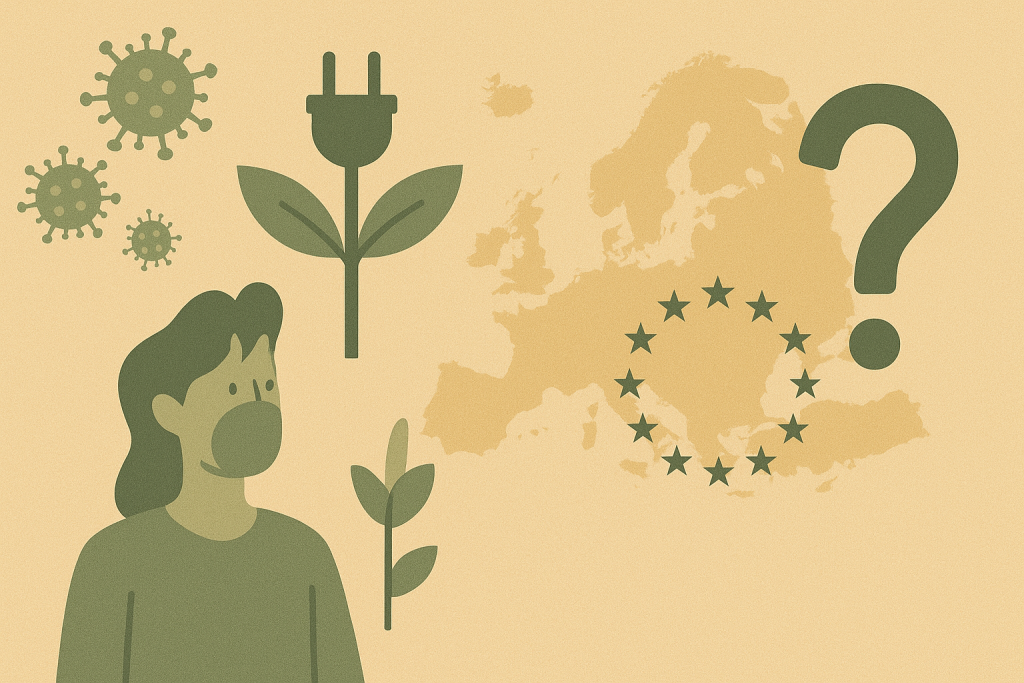Relance verte après la Covid-19 : stratégies européennes ou nationales ?

Modératrice :
Anna Creti est professeure titulaire à l’Université Paris Dauphine, directrice de la chaire Économie du climat (Université Dauphine) et de la chaire Économie du gaz (Université Dauphine, Toulouse School of Economics, IFPEN, École des Mines). Elle est chercheuse à l’École polytechnique de Paris et affiliée externe au Siebel Institute de Berkeley.
Anna est titulaire d’un doctorat de l’École d’économie de Toulouse et d’un post-doctorat de la London School of Economics. Elle a mené des recherches approfondies sur la concurrence et la réglementation des services publics en réseau (télécommunications, banques, gaz, électricité…), ainsi que sur le lien entre l’énergie, le climat et la réglementation environnementale. Anna est coéditrice de la revue Energy Economics et a publié de nombreux articles dans des revues économiques de premier plan.
Intervenants :
Thomas Pellerin-Carlin est actuellement directeur du Centre Jacques Delors pour l’énergie et chercheur à l’Institut Jacques Delors. Il travaille sur la politique énergétique de l’Union européenne, en particulier dans les domaines de l’innovation et du changement climatique. Thomas a précédemment travaillé dans un cabinet de conseil (Europroject, Italie, 2010), dans l’armée française, dans l’administration française (Secrétariat général aux affaires européennes, 2012) et dans le milieu universitaire au Collège d’Europe (Belgique, 2013-2015) en tant qu’assistant universitaire et assistant de recherche de la chaire de politique énergétique européenne.Thomas a étudié les sciences politiques et est titulaire d’un master du Collège d’Europe en études politiques et administratives européennes, Bruges (2012-2013, promotion Václav Havel) et d’un master de Sciences-Po Lille (2007-2012, promotion George Orwell).
Patrice Geoffron est titulaire d’un doctorat en organisation industrielle et professeur d’économie à l’université Paris-Dauphine depuis 2002. Patrice a été vice-président international de Paris-Dauphine et dirige aujourd’hui le centre de recherche en économie de l’énergie et du changement climatique. Ses recherches portent sur la convergence entre l’électricité et les télécommunications dans la transition vers une énergie à faible intensité carbone, avec un accent particulier sur le développement des villes intelligentes, des réseaux électriques intelligents et l’émergence de nouvelles organisations et de nouveaux modèles économiques. Il est membre du Cercle des économistes, l’un des think tanks les plus influents de France, et a tenu une chronique dans le journal Le Monde pendant dix ans. Il est coéditeur de la revue Economics and Policy of Energy and the Environment, membre du comité scientifique de la Revue de l’énergie et membre du comité de rédaction de l’International Journal of Management and Network Economics.
Lara Lázaro Touza est titulaire d’un doctorat de la London School of Economics (LSE), d’un master en évaluation environnementale de la LSE et d’une licence en économie de l’Universidad Autónoma de Madrid. Elle est analyste senior au sein du programme Énergie et changement climatique de l’Institut royal Elcano à Madrid. Elle est également chargée de cours en théorie économique au Colegio Universitario Cardenal Cisneros (rattaché à l’Universidad Complutense de Madrid) et professeure adjointe d’économie politique du changement climatique à l’IE School of Global and Public Affairs dans le cadre du Master en développement international (MID), un programme développé en partenariat avec le Collège des cadres du système des Nations unies. Auparavant, elle a été nommée post-doctorante à la London School of Economics. Elle a également travaillé pour Bloomberg. Mme Lázaro Touza travaille actuellement comme chercheuse sur divers projets de recherche financés par des fonds publics et compétitifs, sur des thèmes tels que l’électricité solaire thermique, l’initiative chinoise « Belt and Road » et la coopération entre l’Afrique, la Méditerranée et l’Europe.

